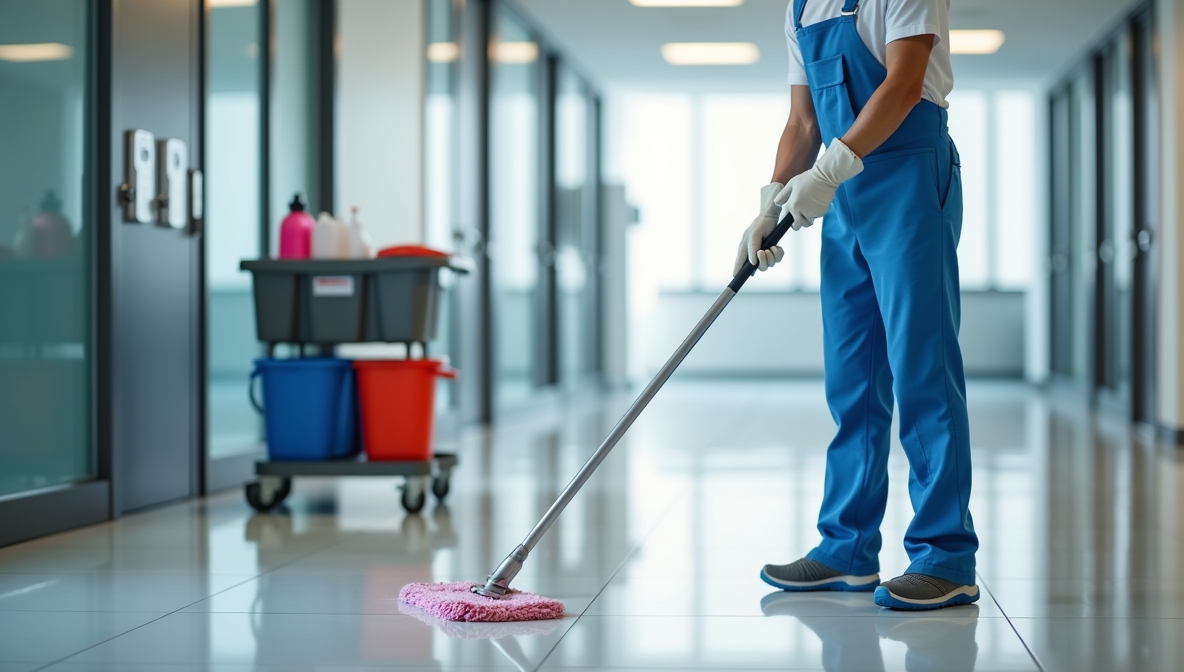Commercial cleaning employers typically conduct background checks focusing on theft, violence, and drug-related offenses, though many companies now embrace fair chance hiring practices that evaluate candidates individually rather than implementing blanket disqualifications. The key factors influencing employment eligibility include the nature of the offense, time elapsed since conviction, and the specific requirements of client contracts.
Key Takeaways
- Most disqualifying crimes include theft, burglary, fraud, violent felonies, and drug trafficking convictions that directly relate to job responsibilities and workplace safety.
- Fair chance hiring laws in many states now require employers to delay background checks until after conditional job offers, giving candidates opportunities to explain their circumstances.
- Individual assessment processes consider factors like rehabilitation efforts, time since conviction, and job relevance rather than automatic disqualification policies.
- Client contract requirements often dictate specific background check standards, with government and healthcare facilities typically having stricter screening criteria.
- Expungement and record sealing can significantly improve employment prospects by removing or hiding certain convictions from standard background checks.
- Alternative employment opportunities exist within the commercial cleaning industry for individuals with criminal records through specialized staffing agencies and second-chance employers.
Understanding Commercial Cleaning Background Check Requirements
Commercial cleaning companies operate in environments requiring high levels of trust and security. Most employers in this industry conduct criminal background checks as part of their standard hiring process. The specific disqualifying factors vary significantly based on company policies, client requirements, and local regulations. The commercial cleaning industry has evolved toward more inclusive hiring practices in recent years. Many employers now recognize that blanket disqualification policies can unfairly exclude qualified candidates who pose no actual risk to workplace safety or security.
Common Commercial Cleaning Disqualifying Crimes
Theft-related offenses represent the most serious concern for commercial cleaning employers. These convictions directly relate to the trust required when working in clients' facilities. Violence-related crimes also create significant barriers due to workplace safety considerations.
Primary Disqualifying Crime Categories:
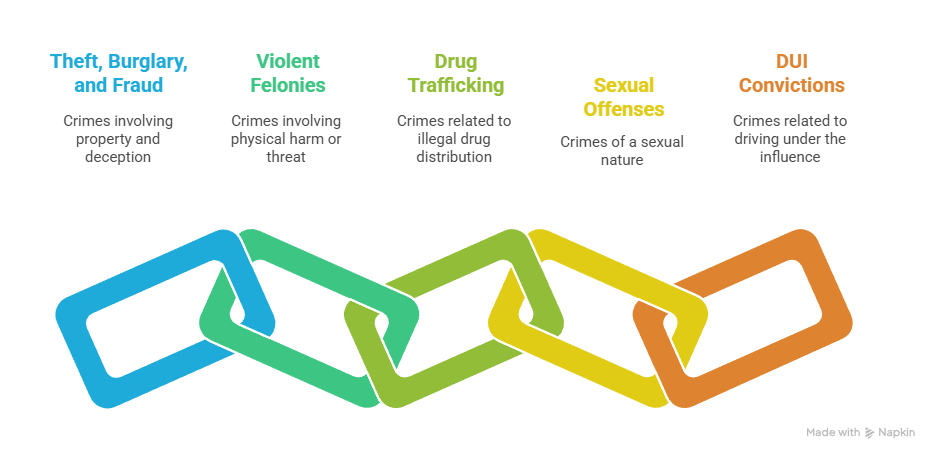
- Theft, burglary, and fraud convictions
- Violent felonies including assault and battery
- Drug trafficking and distribution charges
- Sexual offenses and crimes against persons
- Recent DUI convictions affecting reliability
Companies evaluate these offenses differently based on severity, recency, and job relevance. Most employers now consider rehabilitation efforts and individual circumstances rather than implementing automatic disqualifications.
Property and Theft-Related Convictions
Property crimes create the strongest barriers to commercial cleaning employment. Burglary convictions raise immediate red flags since cleaning staff access clients' facilities after hours. Larceny and shoplifting demonstrate dishonesty concerns that directly conflict with the trust required in cleaning positions.
Embezzlement and fraud convictions indicate serious character issues that most cleaning companies cannot overlook. However, minor theft offenses from several years ago may receive individual consideration, especially when accompanied by evidence of rehabilitation and stable employment history.
Violence and Safety-Related Offenses
Violent criminal offenses create significant liability concerns for commercial cleaning companies. Assault and battery convictions suggest potential workplace conflicts or client safety risks. Domestic violence charges receive particular scrutiny due to anger management concerns.
| Offense Type | Typical Review Period | Mitigation Factors |
| Simple Assault | 5-7 years | Anger management completion |
| Domestic Violence | 7-10 years | Counseling and restraining order compliance |
Robbery and armed violence convictions typically result in longer disqualification periods. Nevertheless, some employers consider these cases individually after substantial time periods and clear rehabilitation evidence.
Drug and Substance-Related Charges
Drug offense evaluation depends heavily on the specific charges and current legal landscape. Simple possession charges increasingly receive lenient consideration, particularly for marijuana-related offenses. However, trafficking and distribution convictions remain serious disqualifiers for most commercial cleaning positions.
The distinction between addiction-related crimes and profit-motivated distribution significantly impacts employment prospects. Many employers now view substance abuse as a health condition rather than a character flaw, especially for candidates demonstrating successful recovery efforts through treatment programs and sustained sobriety.
Federal and State Fair Chance Hiring Regulations
Ban the Box Implementation Impact
Thirty-seven states and over 150 cities have implemented comprehensive "Ban the Box" legislation that significantly affects commercial cleaning hiring practices. These laws prohibit employers from including criminal history questions on initial job applications. Instead, background checks must wait until after conditional employment offers.
Key Ban the Box Requirements:
- Delayed screening: Background checks only after job offers
- Individual assessment: Case-by-case evaluation requirements
- Written notifications: Explanation requirements for rescinded offers
- Appeal processes: Candidate response opportunities
Fair chance hiring laws aim to reduce employment barriers while maintaining legitimate business safety requirements. These regulations have created more opportunities for qualified candidates with criminal records in the commercial cleaning industry.
EEOC Criminal Background Guidelines
The Equal Employment Opportunity Commission provides specific guidance for employers conducting criminal background screening in commercial cleaning and related industries. EEOC recommendations emphasize job-relatedness and business necessity when making hiring decisions based on criminal history. Employers must demonstrate that specific convictions actually impact job performance or workplace safety.
The three-factor test requires employers to consider the nature of the crime, time elapsed since conviction, and relevance to job duties. This framework prevents broad exclusionary policies that disproportionately affect certain demographic groups while allowing legitimate safety considerations.
Industry-Specific Requirements and Client Standards
Government contract cleaning positions face significantly stricter background check requirements than private sector opportunities. Federal contracts often mandate comprehensive security clearances that automatically disqualify candidates with certain criminal convictions. These positions typically require extensive screening processes including fingerprinting, credit checks, and multi-level background investigations.
Government Cleaning Security Requirements:
- Secret clearance: Clean record for 7+ years required
- Public trust positions: Limited criminal history tolerance
- Facility-specific standards: Varies by government agency
Healthcare facility cleaning involves additional regulatory considerations due to patient safety requirements and HIPAA compliance obligations. Many healthcare employers screen for patient abuse history, healthcare fraud, drug diversion, and identity theft convictions that specifically relate to healthcare environments.
Corporate and Private Sector Standards
Private sector commercial cleaning typically offers more flexibility in hiring practices compared to government contracts. Corporate clients may have specific security requirements, but these generally allow for individual assessment of criminal backgrounds. Office buildings, retail facilities, and manufacturing plants often focus on theft and violence prevention rather than comprehensive security clearances.
Insurance requirements significantly influence private sector hiring decisions. Commercial liability policies may exclude coverage for employees with certain criminal convictions, effectively creating hiring barriers even when employers prefer inclusive practices.
Individual Assessment and Rehabilitation Factors
Time elapsed since criminal convictions significantly influenced employment decisions in commercial cleaning positions. Most progressive employers recognize that older convictions may not accurately reflect current character or risk levels. Modern hiring practices implement sliding scales that balance conviction age with offense severity.
Standard Time Consideration Guidelines:
- Misdemeanors: Individual assessment after 3-5 years
- Non-violent felonies: Reconsideration after 5-7 years
- Violent felonies: Evaluation possible after 7-10 years
Rehabilitation evidence carries substantial weight in modern hiring decisions. Successful completion of treatment programs, educational achievements, and stable employment history effectively demonstrate positive life changes. Character references from community leaders, employers, or counselors provide valuable context that can overcome negative criminal history concerns.
Employment History and References
Consistent work history following conviction demonstrates reliability and commitment that many cleaning companies value highly. Employment gaps require honest explanation, but positive performance evaluations and supervisor recommendations can effectively address trustworthiness concerns. Volunteer work and community involvement also demonstrate character development and civic responsibility.
Professional development activities such as skills training, industry certifications, and educational advancement show commitment to personal growth. Many commercial cleaning employers view these efforts as strong indicators of rehabilitation and future job performance potential.
Record Improvement and Legal Remedies
Expungement and record sealing provide powerful tools for improving employment prospects in the commercial cleaning industry. These legal processes can remove or hide certain convictions from standard background checks conducted by employers. Expungement eligibility varies significantly by state and offense type, with most jurisdictions allowing misdemeanor expungement after specific waiting periods.
Common Expungement Eligible Categories:
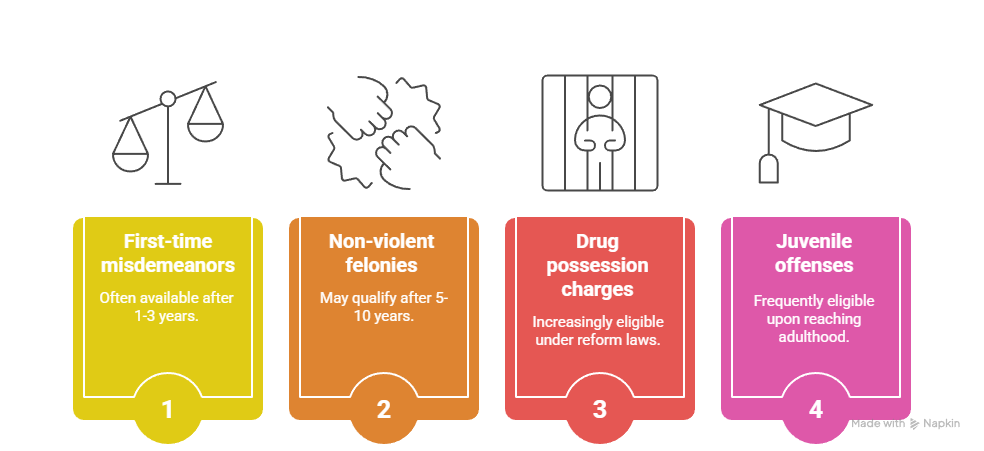
- First-time misdemeanors: Often available after 1-3 years
- Non-violent felonies: May qualify after 5-10 years
- Drug possession charges: Increasingly eligible under reform laws
- Juvenile offenses: Frequently eligible upon reaching adulthood
Record sealing differs from expungement by hiding rather than destroying criminal records. Sealed records remain accessible to certain government agencies but disappear from standard employment background checks used by most commercial cleaning companies.
Certificate and Rehabilitation Programs
Many states offer certificate of rehabilitation or good conduct programs that provide official documentation of successful reintegration into society. These certificates don't remove criminal records but demonstrate commitment to lawful behavior and community involvement. Commercial cleaning employers often view rehabilitation certificates favorably when making hiring decisions.
| Certificate Type | Requirements | Employment Benefits |
| Good Conduct Certificate | 3-5 years crime-free | Character evidence |
| Rehabilitation Certificate | Completed probation | Legal rehabilitation presumption |
Governor pardons represent the strongest form of criminal record relief but require extensive documentation and typically involve serious crimes with clear rehabilitation evidence. Pardons significantly improve employment prospects across all industries including commercial cleaning.
Alternative Employment Pathways and Opportunities
Specialized Second-Chance Staffing Services
Several staffing agencies specialize exclusively in placing individuals with criminal backgrounds in commercial cleaning positions. These agencies understand the unique challenges faced by job seekers with criminal records. They maintain relationships with employers committed to fair chance hiring practices and can effectively match candidates with appropriate opportunities.
Specialized Agency Services:
- Pre-screening assistance: Help identify suitable positions
- Interview coaching: Practice explaining criminal history
- Resume writing: Emphasize strengths over criminal background
- Ongoing support: Continued employment assistance
These agencies often provide wraparound services including transportation assistance, work clothing, and financial counseling. They understand which employers are most receptive to hiring individuals with specific types of criminal backgrounds.
Entrepreneurial Cleaning Business Options
Starting an independent cleaning business represents a viable alternative for individuals facing employment barriers due to criminal records. Self-employment eliminates the need to pass employer background checks, though client requirements may still apply in some situations. Successful cleaning entrepreneurs must obtain proper licensing, insurance, and bonding despite criminal backgrounds.
Building a client base requires demonstrating reliability and quality service through work performance rather than clean background checks. Many successful cleaning business owners with criminal records started by serving friends, family, and community members who knew their character personally. Word-of-mouth referrals and consistent service quality can overcome initial concerns about criminal history.
Business insurance may cost more for individuals with criminal records, but specialized insurers serve this market. Professional liability coverage and bonding options exist for business owners with various criminal backgrounds, though premiums reflect increased risk assessments.
Practical Job Search Strategies for Candidates
Honesty and transparency represent the most effective approaches for job seekers with criminal backgrounds applying for commercial cleaning positions. Attempting to hide criminal history typically backfires when background checks reveal undisclosed convictions. Instead, candidates should prepare concise, honest explanations that acknowledge responsibility while emphasizing rehabilitation and positive life changes.
Effective Application Strategies:
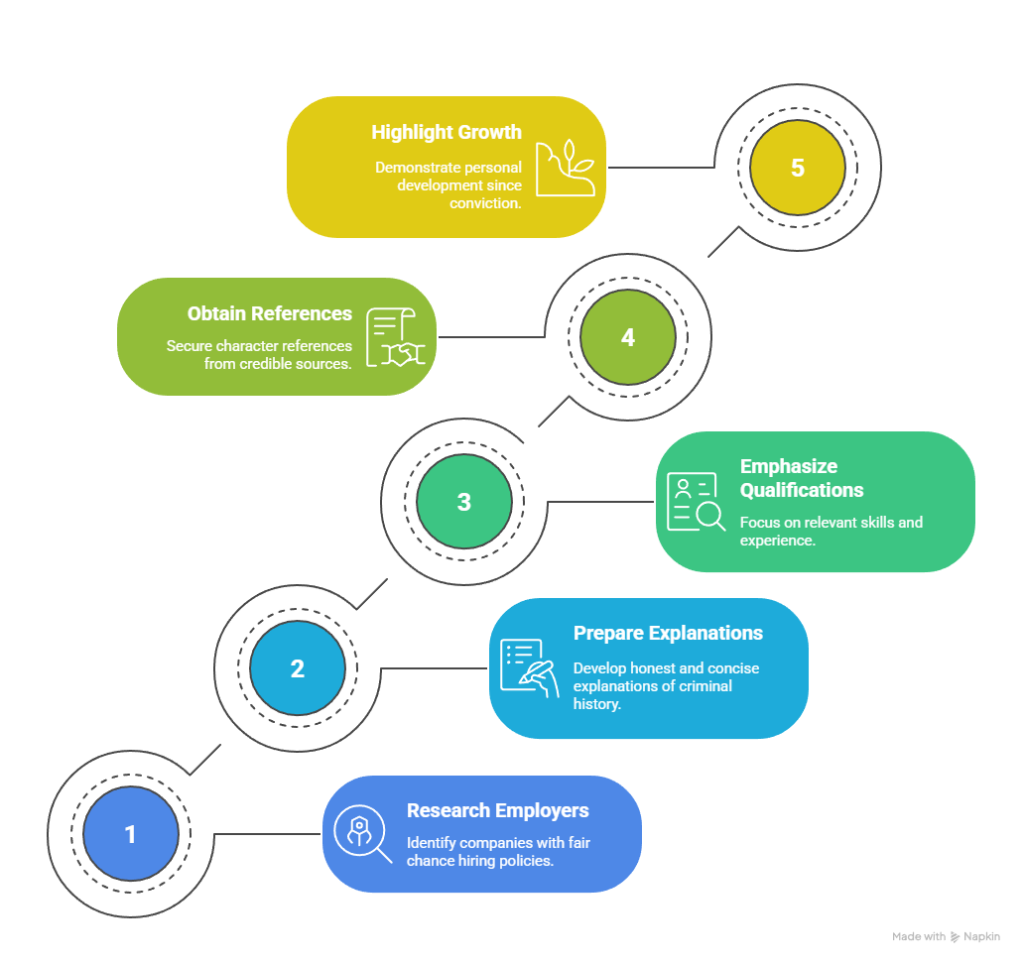
- Research employers: Target companies with fair chance hiring policies
- Prepare explanations: Develop honest, concise criminal history explanations
- Emphasize qualifications: Focus on relevant skills and experience
- Obtain references: Secure character references from credible sources
- Highlight growth: Demonstrate personal development since conviction
Professional appearance, punctuality, and respectful communication during interviews help overcome initial concerns about criminal backgrounds. Many employers value positive attitude and strong work ethic over perfect criminal records, particularly in labor-intensive industries like commercial cleaning.
Networking and Professional Development
Building professional networks within the commercial cleaning industry provides valuable employment opportunities for individuals with criminal backgrounds. Industry connections often lead to job opportunities that bypass traditional application processes and background check barriers. Professional associations, trade organizations, and community groups offer networking opportunities that emphasize personal relationships over criminal history.
Volunteer work demonstrates character and commitment while building professional relationships that can lead to employment opportunities. Community involvement shows civic responsibility that many commercial cleaning employers value when evaluating candidates with criminal records.
Industry certifications and training programs demonstrate professional commitment and skill development. Many commercial cleaning companies prefer candidates with relevant training, and these qualifications can help overcome concerns about criminal history by showing dedication to professional excellence.
Current Industry Trends and Future Outlook
The commercial cleaning industry continues moving toward more inclusive hiring practices as labor shortages persist and fair chance hiring legislation expands. Many major cleaning companies now implement individualized assessment processes rather than blanket disqualification policies. This trend creates increasing opportunities for qualified candidates with criminal backgrounds.
Technology advances in background checking allow for more nuanced evaluation of criminal history. Modern screening processes can better assess risk relevance and provide employers with more context about candidates' circumstances and rehabilitation efforts.
Emerging Industry Trends:
- Skills-based hiring: Emphasis on qualifications over criminal history
- Rehabilitation partnerships: Collaboration with reentry programs
- Fair chance certification: Company recognition for inclusive hiring
- Technology integration: Better risk assessment tools
Labor market conditions favor job seekers as cleaning companies compete for reliable workers. This competitive environment encourages employers to reconsider restrictive hiring policies and focus on candidates' current qualifications and potential contributions.
Regional Variations and State-Specific Considerations
State laws significantly impact commercial cleaning hiring practices for individuals with criminal records. Progressive states like California, New York, and Illinois have implemented comprehensive fair chance hiring requirements that limit employer discretion in criminal background evaluation. Conversely, states with fewer protections allow broader employer discretion in hiring decisions.
Local ordinances in major metropolitan areas often exceed state requirements for fair chance hiring. Cities like San Francisco, Seattle, and Austin have particularly strong protections that benefit job seekers with criminal backgrounds in all industries including commercial cleaning.
State Law Variations:
- Background check timing: When employers can conduct screening
- Individualized assessment: Required evaluation procedures
- Disclosure requirements: What employers must tell candidates
- Appeal processes: Candidate rights to respond or appeal
Understanding local laws helps candidates know their rights and helps employers ensure compliance with applicable regulations. Legal requirements continue evolving as more jurisdictions adopt fair chance hiring legislation.
Conclusion
Commercial cleaning employment opportunities exist for individuals with criminal backgrounds, despite certain disqualifying crimes presenting significant challenges. The industry's movement toward fair chance hiring practices creates expanding opportunities for qualified candidates regardless of criminal history. Success requires understanding employer concerns, preparing honest explanations, and demonstrating rehabilitation through actions and character references. While theft, violence, and recent drug convictions remain common barriers, many employers now conduct individual assessments that consider candidates' complete circumstances rather than focusing solely on criminal records.
Frequently Asked Questions
Can someone with a felony work for a commercial cleaning company?
Yes, many commercial cleaning companies hire individuals with felony convictions, especially for non-violent offenses or older convictions. The decision depends on factors like the type of felony, time elapsed since conviction, evidence of rehabilitation, and specific employer policies. Fair chance hiring laws in many states now require individual assessment rather than automatic disqualification.
What crimes automatically disqualify someone from cleaning jobs?
While policies vary by employer, theft-related crimes (burglary, larceny, fraud), violent felonies (assault, robbery), and recent drug trafficking convictions commonly result in disqualification. However, many employers now conduct individual assessments rather than implementing automatic disqualifications, considering factors like rehabilitation efforts and time since conviction.
How far back do commercial cleaning background checks go?
Most commercial cleaning companies conduct background checks covering 7-10 years of criminal history, though some may review longer periods for serious felonies. The scope depends on state laws, employer policies, and client requirements. Government contract positions often require more comprehensive background investigations.
Do all commercial cleaning companies require background checks?
While most established commercial cleaning companies conduct criminal background checks, requirements vary by employer size, client base, and local regulations. Smaller residential cleaning services may have less stringent screening processes than companies serving government facilities or healthcare institutions.
Can expunged records still affect cleaning job applications?
Properly expunged records should not appear on standard employment background checks conducted by commercial cleaning companies. However, some government positions or security clearances may still access sealed records. Candidates should verify their expungement was processed correctly before applying for positions.
What should I say about my criminal record in a cleaning job interview?
Be honest and concise about your criminal history while emphasizing rehabilitation, personal growth, and commitment to the job. Focus on how you've changed since the conviction, any rehabilitation programs completed, and your dedication to being a reliable employee. Prepare specific examples of positive life changes and character references.
Are there commercial cleaning companies that specifically hire people with criminal records?
Yes, several commercial cleaning companies and staffing agencies specialize in second-chance hiring or actively recruit individuals with criminal backgrounds. These employers recognize the value of giving people opportunities for fresh starts and often provide additional support for successful reintegration into the workforce.
How long should I wait after a conviction before applying for cleaning jobs?
The appropriate waiting period depends on the offense type and severity. For misdemeanors, waiting 1-3 years may be sufficient, while serious felonies might require 5-10 years before most employers will consider applications. Focus on using this time for rehabilitation, skill development, and building positive references.
Additional Resources
- National Employment Law Project - Fair Chance Hiring Guide
https://www.nelp.org/campaigns/ensuring-fair-chance-to-work/ - Equal Employment Opportunity Commission - Criminal Records Guidelines
https://www.eeoc.gov/laws/guidance/consideration-arrest-and-conviction-records-employment-decisions - Legal Action Center - Criminal Record Barriers to Employment
https://www.lac.org/toolkits/standards/ - National Reentry Resource Center - Employment Resources
https://nationalreentryresourcecenter.org/ - Cleaning Industry Research Institute - Professional Development
https://www.ciriscience.org/ - International Janitorial Cleaning Services Association
https://www.ijcsa.org/ - Building Service Contractors Association International
https://www.bscai.org/ - Second Chance Business Coalition - Employer Resources
https://secondchancebusinesscoalition.org/
Still have questions?
Get in touch with our team today for a personalized demo and discover how our tailored volume pricing and packages can drive results for your business!
How useful was this page?*
Note: your comments are anonymous. We use them to improve the website. Do not include any personal details.
Visit our FCRA Compliance Tool or leave a message here if you need a response.
From the blog Explore the GCheck Content Hub

How Long Does a Background Check Take? A Complete 2025 Guide
13 Dec, 2023 • 14 min read
The Ultimate Background Check Guide
13 Dec, 2023 • 4 min read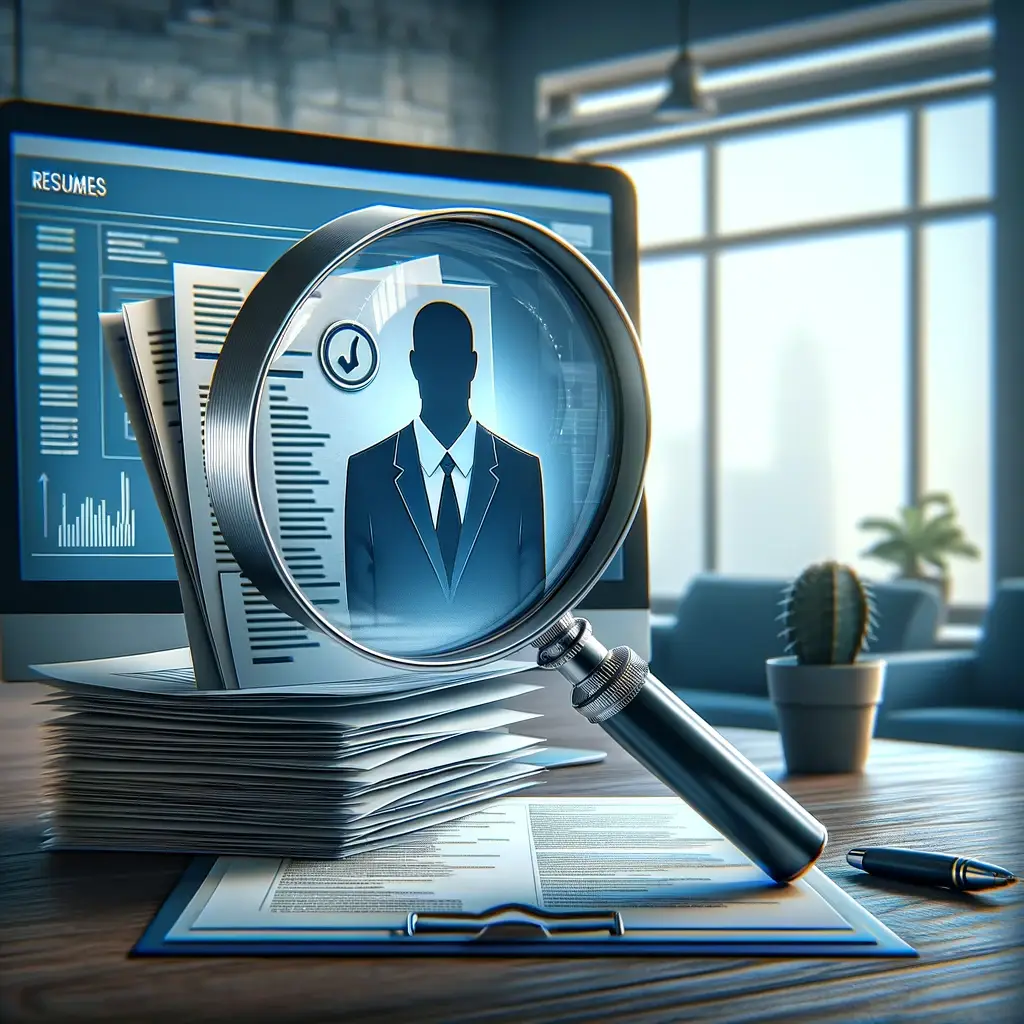
The Ultimate Guide to Employment Background Checks
13 Dec, 2023 • 10 min readThe information provided in this article is for general informational and educational purposes only and should not be construed as legal advice or a substitute for consultation with qualified legal counsel. While we strive to ensure accuracy, employment screening laws and regulations—including but not limited to the Fair Credit Reporting Act (FCRA), Equal Employment Opportunity Commission (EEOC) guidelines, state and local ban-the-box laws, industry-specific requirements, and other applicable federal, state, and local statutes—are subject to frequent changes, varying interpretations, and jurisdiction-specific applications that may affect their implementation in your organization. Employers and screening decision-makers are solely responsible for ensuring their background check policies, procedures, and practices comply with all applicable laws and regulations relevant to their specific industry, location, and circumstances. We strongly recommend consulting with qualified employment law attorneys and compliance professionals before making hiring, tenant screening, or other decisions based on background check information.
